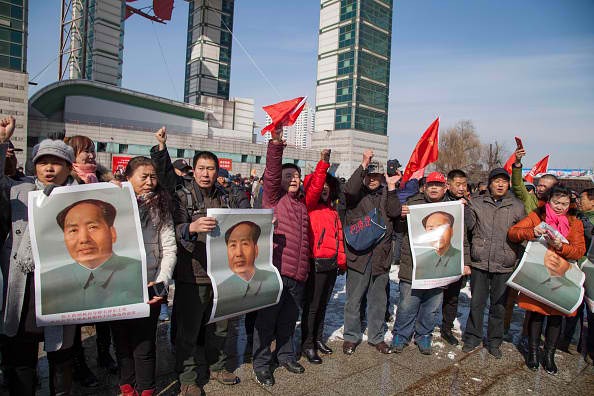The Beijing-Seoul relations have been tarnished, with China promoting the boycott of South Korean goods as the latter allowed the United States to deploy its Terminal High Altitude Area Defense (THAAD) on its soil, The Financial Times reported.
The move by South Korea, which is faced with the menace of North Korea, is considered by China as a threat to its military capabilities as it gives U.S. the chance to penetrate and look deep in its territory.
According to the article, China's allegations could be part of Washington's plan to deploy THAAD. The report argued that this is the way of U.S. to warn China of its lack of action when its client state, North Korea, has been exhibiting aggression during the recent period.
For The Financial Times, the Asian powerhouse should have done things to curb the nuclear-armed Pyongyang's aggression. However, instead of doing as such, China has only taken actions against South Korea, harassing its businesses and stopping its citizens from traveling to its fellow Asian nation, the article wrote. It added that the Communist party has gone to the extent of indoctrinating schoolchildren through mass rallies and boycott of South Korean products.
This has badly affected Korean supermarket chain Lotte, which provided land for THAAD deployment. In China, around 87 percent of its stores have already been temporarily or permanently closed.
Seoul has requested for the World Trade Organization to look into the issue as it may have violated some of the group's rules.
Though the Chinese government tries to distance itself from South Korean protests, its decision of allowing public rallies against the country shows clear proof of the officials' sentiments.
As for how The Financial Times put it, "It is clear that Beijing is encouraging boycotts and stoking anti-Korean sentiment in the hope of forcing the next leader of South Korea into backing down over THAAD."
South Korea is scheduled to hold an election in May after the impeachment of Park Geun-hye.
Frontrunner Moon Jae-in has previously said that he would reconsider the U.S.' deployment of THAAD in his country. He also urged that South Korea should learn how to say "no" to the Western giant.
For analysts, whoever claims the presidential seat should prioritize one thing--ease tension with North Korea. And to be able to do this, it could be necessary to work hand in hand with China, which is coincidentally South Korea's largest trading partner.



























